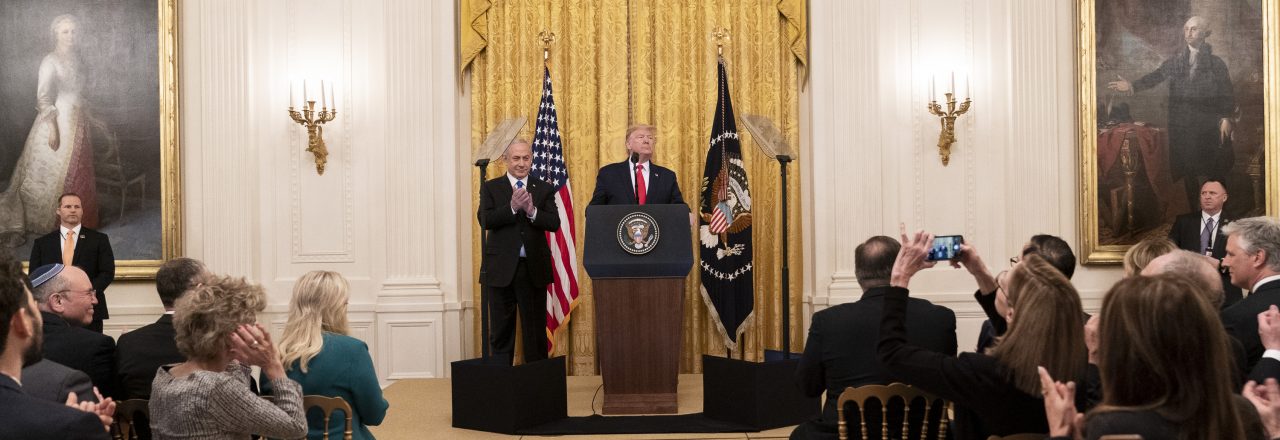
Trump unveils his peace plan for the Middle East
US President Donald Trump announced his peace plan for the Middle East at a press conference in Washington on 28 January with the support of Israeli Prime Minister, Benjamin Netanyahu, while Palestinian leaders rejected the proposal. The 180-page plan, which has been referred to as the “Deal of the Century”, was prepared without any consultation with Palestinian representatives since all relationships with the White House were suspended following Trump’s recognition of Jerusalem as the capital of Israel in December 2017. The proposal includes the establishment of Jerusalem as the undivided capital of Israel, the recognition of Israel’s sovereignty over the vast majority of its settlements in the West Bank and the Jordan Valley, and the refusal to grant Palestinian refugees their right to return. The launch of Trump’s plan was met with protests both in the West Bank and Gaza, and with an immediate reaction by international leaders and institutions. The UN Secretary-General António Guterres said in a note released to correspondents that “the United Nations remains committed to supporting Palestinians and Israelis to resolve the conflict on the basis of United Nations resolutions, international law and bilateral agreements and realizing the vision of two States – Israel and Palestine – living side by side in peace and security within recognized borders, on the basis of the pre-1967 lines”. Besides, High Representative/Vice-President Josep Borrell declared that the EU will examine the proposal on the basis of its already established position and “respecting all relevant UN resolutions and internationally agreed parameters”. In an emergency meeting in Cairo on 1 February, the Arab League rejected the US plan and declared that it would not collaborate with the US in implementing it. In the same meeting, Palestinian president Mahmoud Abbas asserted that relations with the US and Israel are interrupted, including security ties.
- The Euromed news are edited by the team of the Euro-Mediterranean Policies Department of the European Institute of the Mediterranean -


